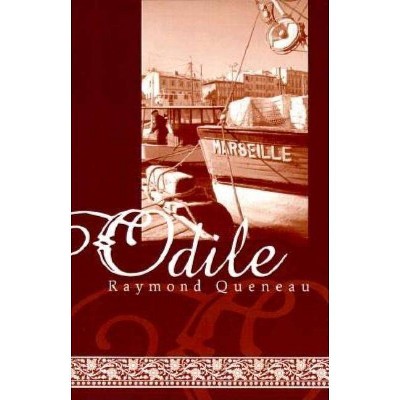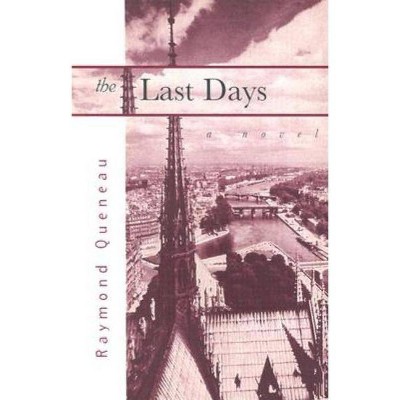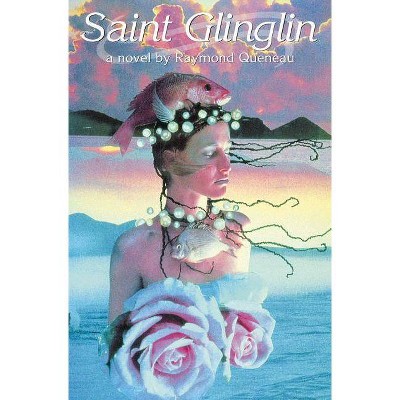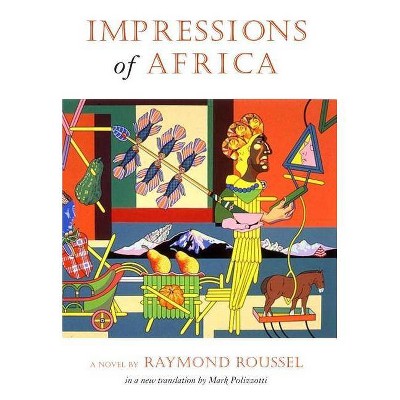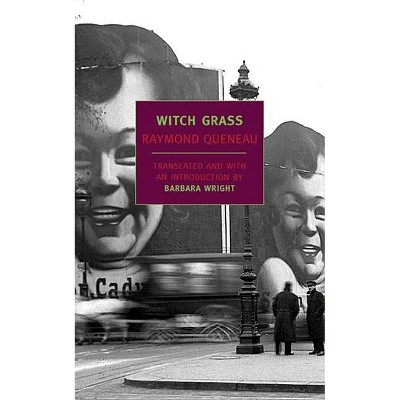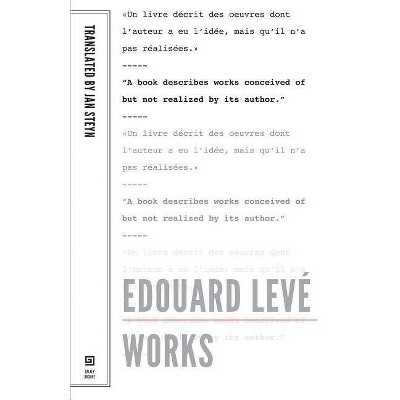Pierrot Mon Ami - (French Literature) by Raymond Queneau (Paperback)
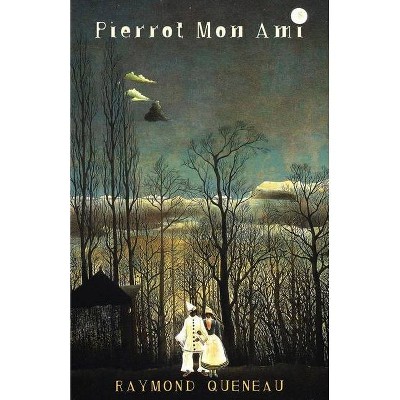
Similar Products
Products of same category from the store
AllProduct info
<p/><br></br><p><b> About the Book </b></p></br></br>"Pierrot Mon Ami was perhaps Queneau's masterpiece . . . This unlikely guru exerted a major influence on a new avant-garde (notably on Georges Perec, who was devoted to him). But if there was a sage in Queneau he never imparted his wisdom more touchingly than in Pierrot Mon Ami." Times Literary Supplement<p/><br></br><p><b> Book Synopsis </b></p></br></br>Pierrot Mon Ami, considered by many to be one of Raymond Queneau's finest achievements, is a quirky coming-of-age novel concerning a young man's initiation into a world filled with deceit, fraud, and manipulation. From his short-lived job at a Paris amusement park where he helps to raise women's skirts to the delight of an unruly audience, to his frustrated and unsuccessful love of Yvonne, to his failed assignment to care for the tomb of the shadowy Prince Luigi of Poldevia, Pierrot stumbles about, nearly immune to the effects of duplicity. This "innocent" implies how his story, at almost every turn, undermines, upsets, and plays upon our expectations, leaving us with more questions than answers, and doing so in a gloriously skewed style (admirably re-created by Barbara Wright, Queneau's principle translator).<p/><br></br><p><b> Review Quotes </b></p></br></br><br>Raymond Queneau's books are ambiguous fairylands in which scenes of everyday life are mingled with a melancholy that is ageless. Though they are not without bitterness, their author seems always to set his face against conclusions, and to be moved by a kind of horror of seriousness. 'Foolishness, ' according to Flaubert, 'consists of wanting to reach a conclusion.' One can imagine those words as the epigraph to Queneau's Pierrot Mon Ami. --Albert Camus<br><br>Pierrot Mon Am--Martin Esslin<br><br>I must underline here the importance of the novels of Raymond Queneau, whose texture often and whose movement always are strictly those of the imagination. --Alain Robbe-Grillet<br><br>Loopily clever . . . inexhaustibly inventive, unremittingly disconcerting, overflowing with subversive energy, surrealistic wit, and rough-edged whimsy . . . All [of Barbara Wright's] translations, including this one, are triumphs of ingenuity. After reading her English version of Pierrot Mon Ami, I raced through Queneau's original in delighted admiration . . . It is full of sentences which dizzy the reader with the hilarity of their close-packed variety of tone: low argot sabotages an elaborate metaphor in elevated language like Harpo Marx goosing Margaret Dumont . . . Queneau's books deserve a wider audience than they have yet won in this country. Anyone who has read one of Wright's translations has probably read them all, and will go out and get this one without needing to be urged. But if you haven't read one already, Pierrot Mon Ami would be an excellent introduction. I must warn you that a taste for Queneau can escalate quite easily into an addiction, but you shouldn't let that stop you, because most good book stores here offer three or four of Wright's translations in paperback, and he's even more fun to re-read than to read.<br><br>Pierrot Mon Ami is a poem on chance and destiny, on the relationship between what should have happened and what actually does happen . . . Pierrot represents one of the main types of the Queneau hero: the simpleton who is a natural poet and who passes through the world without understanding it, without seeking to understand it. In an absurd and meaningless universe this is the most rational and least foolish of all possible attitudes: the taking of life as it comes, without thought of the morrow, and with the resulting freedom to enjoy its simple pleasures. --Martin Esslin<br><br>A brilliant, quirky novel by a French novelist whose reputation continues to grow in America.<br><br>A comic masterpiece.<br><br>A jaunty little tale of unusual verbal dexterity . . . [T]he inventive vernacular of his books . . . is of course in no way ordinary.<br><br>Bizarre . . . entertaining fiction.<br><br>We always feel good reading a Queneau novel; he is the least depressing of the moderns, the least heavy, with something Mozartian about the easy, self-pleasing flow of his absurd plots.<br><br>"We always feel good reading a Queneau novel; he is the least depressing of the moderns, the least heavy, with something Mozartian about the easy, self, pleasing flow of his absurd plots,"<br>
Price History
Cheapest price in the interval: 13.79 on October 27, 2021
Most expensive price in the interval: 13.79 on November 8, 2021
Price Archive shows prices from various stores, lets you see history and find the cheapest. There is no actual sale on the website. For all support, inquiry and suggestion messagescommunication@pricearchive.us
